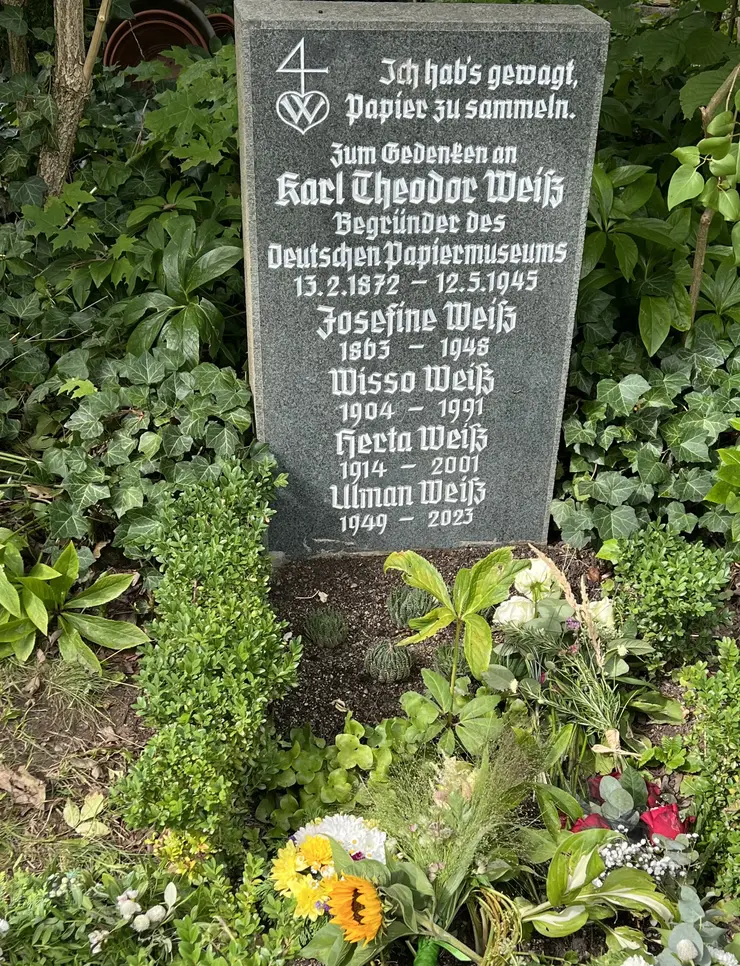Mourning the death of Ulman Weiß
Ulman Weiß was born on 10 June 1949 in Erfurt, the son of Herta and Wisso Weiß, the well-known paper historian and watermark researcher. They probably named their son after the Nuremberg merchant and councillor Ulman Stromer, who built the first paper mill north of the Alps in 1390. After graduating from high school, Ulman Weiß studied German, history and education at the University of Greifswald and then worked as a teacher for three years, including in Zakopane. From 1975 to 1991 he was an employee at the Central Institute for History of the Academy of Sciences of the GDR in Berlin, then at the Coordination and Settlement Office until 1993, when he took up a position at the PH Erfurt and has remained loyal to Erfurt ever since - except for an interruption due to a scholarship at the Herzog August Library in Wolfenbüttel (2011). Here he was a long-standing member of the Society for the History and Antiquity of Erfurt, and also its first chairman from 1990 to 2001. In 1993 he was admitted to the Board of Trustees for Comparative Urban History in Münster, and in 1994 to the Historical Commission for Thuringia.
His habilitation thesis on Esaja Stiefel (1561– 627), written at the University of Erfurt, accepted in 2004 and published in 2007, uses the example of this Thuringian merchant to deal with the problems of religious dissidents in the early modern period, i.e. figures who did not join one of the major denominations that were emerging (Protestantism, Catholicism, Calvinism). Stiefel represented a socially critical spiritualism, combined with the expectation of Christ's soon to dawn millennial earthly reign. Persecution, arrest and the threat of the death penalty forced him to conceal his convictions in order to practise an alternative piety that transcended class barriers within the circle of a small group. In the course of this research, Weiß also coined the term cryptoradicality and stimulated further research on it, just as he has dealt with minorities, the marginalised and the heterodox in other areas as well. Due to his outstanding academic achievements, his commitment to teaching (uninterrupted from 1993 to 2016) and his active membership in professional associations, the President of the University awarded him the dignity of "Extraordinary Professor" in July 2014; this was also an occasion for him to remain connected to the University of Erfurt and in particular to the Department of History until the end.
For the University of Erfurt, he left behind works on Theodor Neubauer, who gave his name to the former teacher training college. In addition, he has voluntarily run the research centre on the history of the older University of Erfurt in recent years and last winter completed a large book manuscript on the college "Zur Himmelspforte"(porta coeli), which was endowed in 1412 by the physician and former rector Amplonius Ratingk de Berka († 1435). In cooperation with the Historical Commission for Thuringia, the Department of History will endeavour to bring this manuscript to publication.
At the end of August, his family informed us that he had passed away after a short, serious illness. He was buried on 29 August in Erfurt's main cemetery, where his ashes now lie with his parents and grandparents. All those who were able to get to know him better or work with him know that the city and the University of Erfurt have lost an outstanding and courageous scientist - but also a passionate marathon runner, an amateur gardener and an attentive listener.

